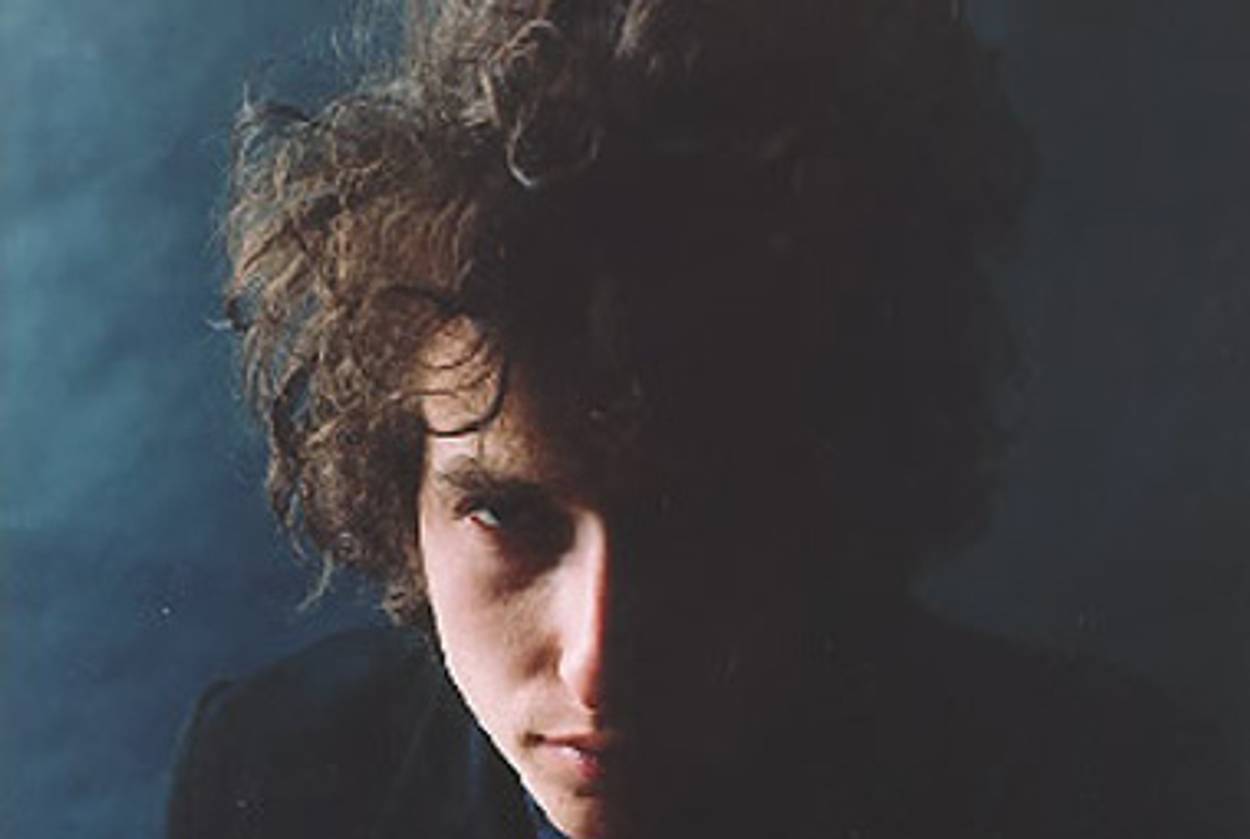Little Boy Lost, He Takes Himself So Seriously
Bob Dylan turns 70




The most conspicuously Jewish character in Bob Dylan’s autobiography, 2004’s Chronicles, Volume One is young Robert Zimmerman’s grandmother. “Once he said that President Kennedy wouldn’t last out his term because he was a Catholic,” Dylan remembers of a friend. “When he said it, it made me think about my grandmother, who said that the Pope is the king of the Jews.” She is one of the few characters in the book (other than himself) that we get a detailed backstory on, and absolutely the only one whose detailed backstory is explicitly Jewish. She was his mother’s mother, and she lived in the nearest city—Duluth, Minnesota—when he was growing up. She had only one leg.
My grandmother’s voice possessed a haunting accent—face always set in a half-despairing expression. Life for her hadn’t been easy. She’d come to America from Odessa, a seaport town in southern Russia. It was a town not unlike Duluth, the same kind of temperament, climate and landscape and right on the edge of a big body of water. Originally, she’d come from Turkey, sailed from Trabzon, a port town, across the Black Sea—the sea that the ancient Greeks called the Euxine—the one that Lord Byron wrote about in Don Juan. Her family was from Kagizman, a town in Turkey near the Armenian border, and the family name had been Kirghiz. My grandfather’s parents had also come from that same area, where they had been mostly shoemakers and leatherworkers. My grandmother’s ancestors had been from Constantinople.
We learn two things from this. One: Bob Dylan, who was born 70 years ago today, is descended from Turkish Jews. (Interesting!) Two: He consciously traces his lineage this way, which means some part of himself still, as of last decade, saw himself as a Jew, or as coming from Jews.
Does this matter? Who the hell knows?
As the 2006 Todd Haynes film I’m Not There conveyed perhaps better than any other artifact of Dylanology, you cannot believe a word Dylan says—never more than when he is talking about himself. Is that story really his grandmother’s story? Probably. Does he identify with her Turkish Jewish heritage? Maybe. Is he even technically Jewish at this point? I’d doubt it: He famously converted to Christianity in the late ‘70s, and has since given it up and made the odd appearance in shul, but I wouldn’t wager that he has gone through the process necessary to become a Jew again. “I is someone else,” wrote Rimbaud, and that is the shape-shifting costume that Dylan has always worn during a career now entering its sixth decade. (“They say, ‘Sing while you slave,’ I just get bored.”)
But here are some facts. Bob Dylan was born to and raised by Jewish parents in a Jewish milieu, complete with bar mitzvah, in Hibbing, Minnesota. He made his name in New York’s early-1960s folk scene, which was to an almost hilarious extent dominated by Jews (record exec Lou Levy, folk music aficionado Izzy Young, manager Albert Grossman, magazine editor Irwin Silber, and on and on). He spent the first half of his career taking pre-existing genres, tropes, and even tunes and assimilating them into his act and his identity, and the latter half as the wanderer par excellence: Jewish archetypes both. He is also—in my opinion, and certainly many others’—the best and most important popular American artist of the past half-century. And there is surely at least some extent to which the Jews get to claim him.
Back to his grandmother. “She was filled with nobility and goodness,” Dylan says quite early on in the book, before he has fully described her, “told me once that happiness isn’t on the road to anything. That happiness is the road. Had also instructed me to be kind because everyone you’ll ever meet is fighting a hard battle.” It’s great advice. You’ve heard the first before, no doubt, from any number of people. And the second is attributed to Plato. Sigh. When you’re talking about Bob Dylan, there are no truths outside Bob Dylan.
Related: Dylan: Tangled Up in Jews [Washington Jewish Week]
Marc Tracy is a staff writer at The New Republic, and was previously a staff writer at Tablet. He tweets @marcatracy.